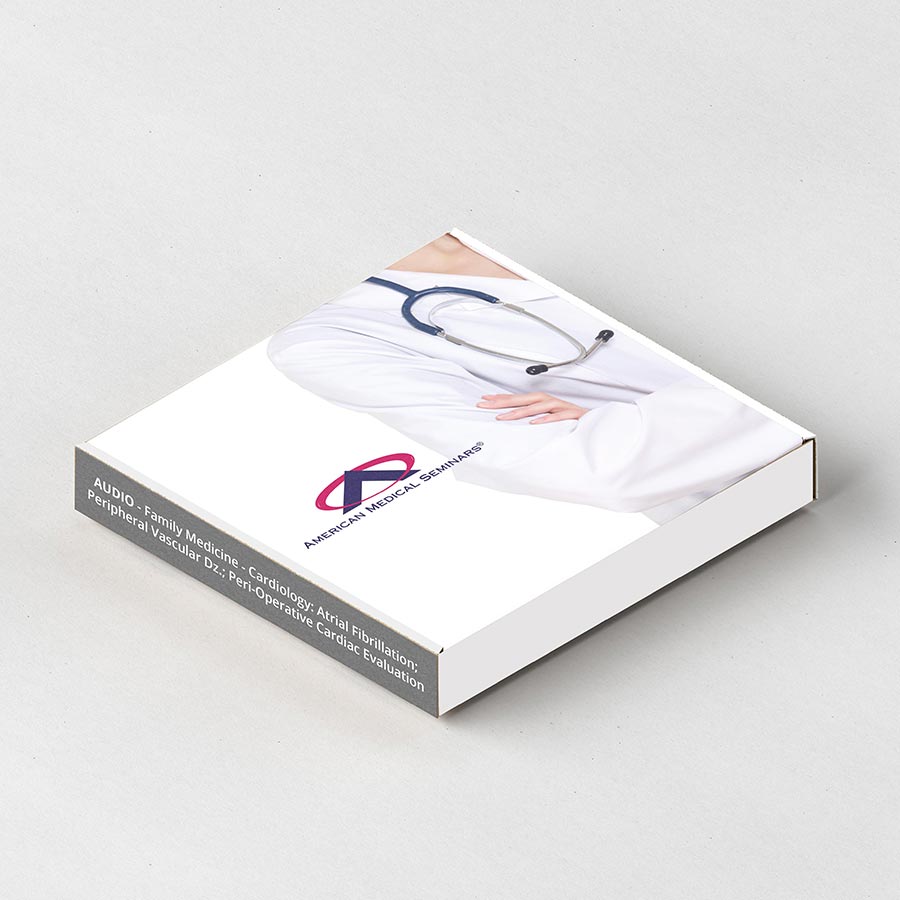Product Description
Title: Family Medicine – Cardiology: Atrial Fibrillation; Peripheral Vascular Disease; Peri-Operative Cardiac Evaluation
Faculty: Premraj Makkuni, M.D., F.A.C.C.; Gregary D. Marhefka, M.D., F.A.C.C., F.A.C.P and Alyson N. Owen, M.D.
Original Release Date: July 1, 2017 Expiration Date: July 1, 2020
TOPIC 1: Atrial Fibrillation.
Upon completion of this session, the participant should be able to:
- Relate the importance of anticoagulation, based upon CHADS2VASC Risk Scores and the ACC/AHA Guidelines in the management of atrial fibrillation.
- List various pharmaceutical and non-pharmaceutical methods of normalizing ventricular rate.
- Compare two possible strategies for cardioversion in atrial fibrillation.
- Assess the potential benefit and harm of antiarrhythmic therapies.
TOPIC 2: Peripheral Vascular Disease.
Upon completion of this session, the participant should be able to:
- Recognize the indications for ordering ABIs as per the ACCF/AHA Guidelines.
- Apply as per the current ACCF/AHA Guidelines, the indications for screening abdominal aortic aneurysms.
- Discriminate indications, strengths and weaknesses of different surgical techniques for abdominal aortic aneurysm repair.
- Employ non-surgical therapies for peripheral vascular disease.
- Identify when renal artery interventions may be indicated.
TOPIC 3: Peri-Operative Cardiac Evaluation.
Upon completion of this session, the participant should be able to:
- Formulate guideline based strategies for peri-operative risk evaluation.
- Relate peri-operative cardiovascular physiology.
- Appraise evidence behind recommendations.
- Prescribe peri-operative risk reduction strategies.
- The receipt for any incentive-associated purchase will designate the value of the gift card separately from the cost of the learning activity.
- This incentive may have implications on your tax reporting obligations. Any reimbursed amount must be declared as personal income for tax purposes.


